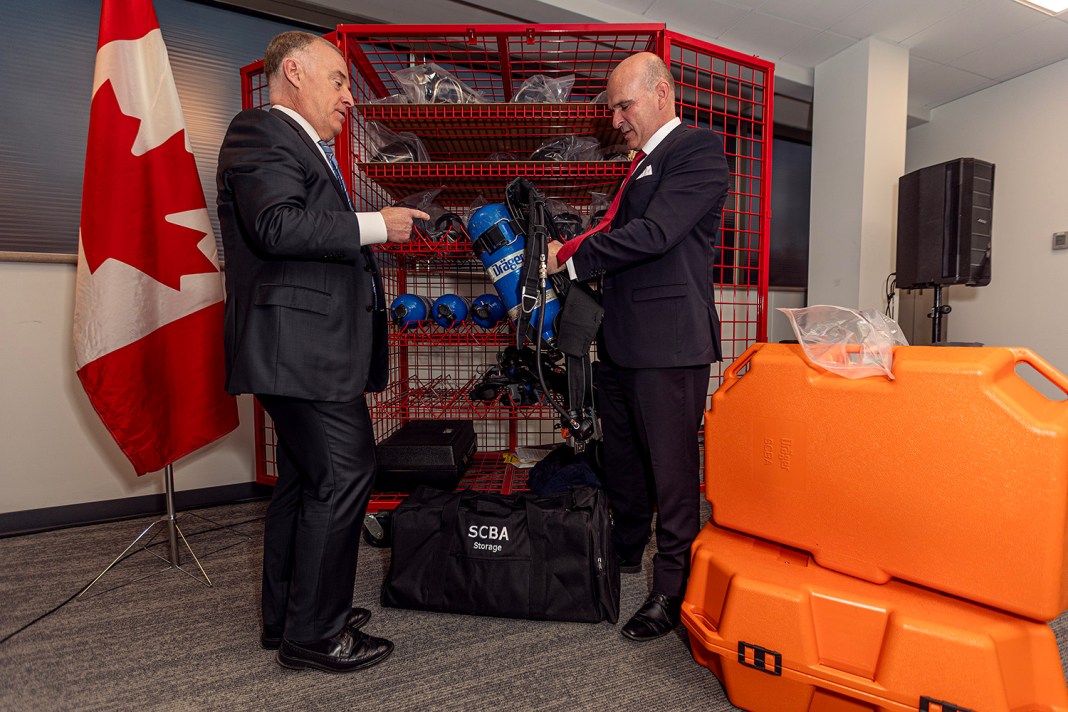The Government of Canada announced a pair of significant investments from the Sectoral Workforce Solutions Program (SWSP) into a pair of Calgary firms to support the creation of green economy jobs in Alberta.
Speaking on Sept. 19 about the investments, Minister of Employment, Workforce Development and Official Languages Randy Boissonnault, called the $14.8 million investment into Energy Safety Canada and $17.6 million for Environmental Careers Organization Canada, an opportunity to connect people with their best jobs.
“What it does is helps people get the training they need to really take on the green economy challenge and it helps employers find workers they need to do the work they want to do,” he said.
Energy Safety Canada will be using the funding to deliver micro-credential programs and job training for industries connected to reducing green gas emissions, corporate governance and ESG, and best practices for engaging with Indigenous peoples in the energy sector.
Environmental Careers Organization Canada will be developing national occupational standards for the environmental sector, along with micro-credentials, certification, mentorship, and wage subsidies for helping people enter green economy jobs.
Murray Elliott, CEO of Energy Safety Canada said that meeting Canada’s net-zero goals meant having a thriving skilled labour market.
“Three training programs have been launched to address targeted skill gaps through upskilling and training programs to help Canadian energy workers to evolve their skills,” Elliott said.
“There’s also a gap in information resources for workers, particularly for underrepresented groups and those transitioning to careers. They need to know about the skills and competencies required to advance their careers in the changing energy industry.”
Minister Boissonnault said that the Calgary funding represented part of $143.8 million being given across the nation for green jobs through the SWSP.
“Tens of thousands of people are going be directly affected by this training to be in the work they want, and why does it matter? Because we all know that times are tough… but the best hedge against an inflation challenge, and the best hedge against a challenge in affordability in the short term, is a good paying job,” the minister said.
Addressing international pressures for clean energy workers
Minister Boissonnault said that the funding provided by the federal government was directly related to creating and keeping jobs in Alberta.
“We want employers to know that they’re going to have a place for a long time, that as people grow and develop that there’s an ecosystem to catch them. We want those workers to be here.”
He said that he spoke directly to Saudi Arabia’s Crown Prince Mohammed bin Salman, who also serves on the board of OPEC, and Pedro Miras, President of the World Petroleum Congress, about the need for Alberta workers in Canada’s net-zero strategy.
“There is no pathway to net zero in Canada without Alberta workers,” Boissonnault said.
“There’s no pathway to net zero Canada without Canadian workers and the Sectoral Workforce Program. Thanks to all the partners in this room, governments have programs, but without you folks doing the work it doesn’t amount to anything.”
He said that the latest workforce numbers alone point to a million job vacancies, and that training will help to fill that gap to ensure that workers meet the needs of employers.
Minister Boissonnault also addressed concerns about clean energy jobs being used to replace work in the oil and gas sector.
“We’re the fourth largest producer of oil and gas, the fifth largest producer of natural gas. Folks, we bought a pipeline. Like we bought a pipeline, and we’re going to get the pipeline finished,” he said.
“LNG: $40 billion being developed right now so we can get Canadian liquid natural gas in the world. We are going to be in this sector for a long time, at the same time, we’re going to bring our emissions down.”
He said that the world was counting on Canada to make targeted changes to the petrochemical source of emissions, which accounts for approximately 26 per cent, and transportation which accounts for 25.
“We can tackle those two sectors and get those emissions down. We’ll do what Canadians are asking us to do, which is fight climate change and have good-paying jobs.”


